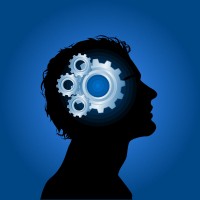Imagine a world where human beings weren’t susceptible to diseases, where we were all strong and smart, where we couldn’t feel pain and could be put in a state of ecstasy due to things which today produce only mild excitement. Imagine a world where human beings could fly of their own volition, where we have…
A few weeks ago I made some posts discussing the role science can play in describing our moral values and their origins. I took pains at every point of the way though to point out that I was not prescribing any moral behavior, or defending our evolved morality as “right”. This is not to say…
In this last post in this series on morality I want to try to tie together some of the seemingly disparate paths we’ve traveled down these past two weeks. I began with an argument for the need to consider scientific knowledge when thinking about morality and moral standards, and further made the argument that any…
Posted on November 26, 2010
In Brain Research, ethics, by Greg
In interacting with other human beings we presuppose that people have their own thoughts and beliefs and desires and that these states can be judged objectively on the basis of this knowledge of them being separate and distinct beings from us. This understanding of the intentional states of others is called Theory of Mind. What are the mechanisms that underlie Theory of Mind, and how important are they in judgments regarding the actions of others?
Up until now I’ve been making a case for the distinct causal roles our emotional and more rational brain systems play in moral judgments. This is a false distinction. The fact remains that the individual making a moral judgment is an organism susceptible to emotions, and whether those emotions can be fully divorced from rational thought is an area worth exploring.
Posted on November 22, 2010
In Brain Research, ethics, by Greg
Anyone who has even a basic familiarity with philosophy, or has stayed up late arguing with friends after a few drinks, has probably at one time or another been posed with some sort of hypothetical situation. Hypotheticals are both difficult to answer and interesting to contemplate precisely because we are posed with a situation we have never been in, and might never be in.




